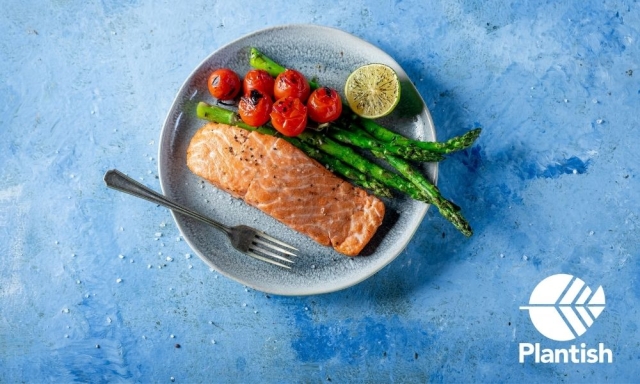Plantish is a new Israeli start-up with the goal of saving ocean life and developing plant-based materials as a substitute. The company strives for appearance, texture, taste, and nutritional qualities that are identical to the real deal.
"Fish are the most hunted animals," explains Ofek Ron, the CEO and founder of Plantish and the living spirit behind the company. "If nothing is done, in a few decades there will probably be no fish in the sea."
Most fish, are not hunted for food at all but are accidentally caught in industrial fishing nets and thrown back into the sea after they are no longer alive. "As an activist, I was very passionate about doing something to keep them safe, so that they could continue to swim and we could go into the sea and witness these amazing fish," says Ron.
In contrast to the $1.4 billion alternative meat market in 2020, the fish substitute market is still in its early stages according to the Good Food Institute, a non-profit organization that promotes meat and fish substitutes. U.S. sales in 2020 totaled just $12 million and were 0.1% of the fish and seafood business.
One of the obstacles is that most of the alternative products on the market are ground fish or fish-based products that mimick quality ingredients intended for sushi such as Surimi which mimics crab legs, popularly used in California rolls, with not many day-to-day fish products being sold. This is exactly the problem that Plantish seeks to solve by creating slices of plant-based salmon - the first in the world. In the future, it is interested in developing substitutes for other fish and seafood like shrimp and calamari.
"Salmon is the most popular fish in the world," Ron elaborates on the decision to focus on Salmon substitutes in the first phase. “We know salmon is a product that people just love, it was important for us that our first product be a winner. "
So how do you actually make a salmon substitute? "We start by reverse-engineering the real fish," explains Elimelech, a doctor of chemistry who is in charge of research and development at the company. Using a 3D printer they reassemble actual fish cells into a salmon configuration. "3D printing is our bread and butter because we want to produce the exact structure of the fish."
Visually it is very similar to the real deal, including the orange flesh color and white fatty stripes. It is also quite tasty, however, as of now the texture is not identical to real salmon. "The most challenging thing is the texture," admits Elimelech. The company is working hard to get it right so they can reach the market within the next 18 months.
Once they succeed and being one of the leading food-tech startups in Israel there is no doubt they will, even vegans will be able to enjoy the traditional bagel lox and cream cheese sandwich after the long Yom Kippur Fast.


